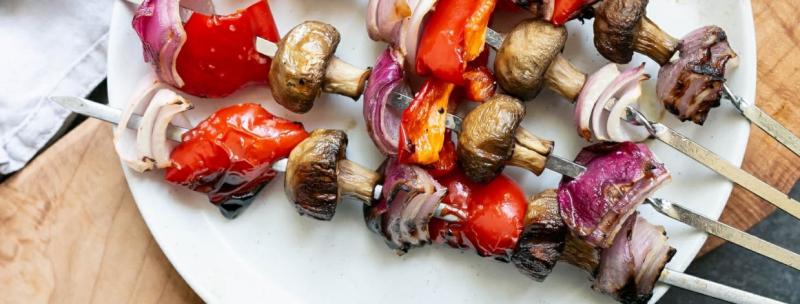
Fire up the BBQ — protein is an important part of a healthy life!
As we head into summer with barbecues ready to cook up amazing steaks and burgers, I thought it would be interesting to delve into the world of protein, what it is, how it works, how much you really need, and how to balance it out.
Protein is a macronutrient, meaning it is one of the three main food groups. The other two are carbohydrates and fats. In a balanced diet, each food group has its place and specific health benefits.
There is a lot of talk about protein, but before you decide whether you are eating too much or too little, it is important to understand protein’s role in your diet.
Protein’s make-up and role.
In nutritional terms, protein’s primary function is to build up and maintain the body as you go through different stages of life. Protein is made up of amino acids (it can help to think of these as building blocks), and the sequencing and quantity of these amino acids will determine their role within the body.
For your body to function properly, you require a variety of amino acids in your diet. Your body is very efficient; it can make 11 of these amino acids. However, there are nine amino acids that the body can’t make. Known as essential amino acids, they are mainly found in animal proteins such as eggs, milk, meat, and fish; these foods are known as complete proteins.
Other foods such as legumes, vegetables, nuts, and seeds are incomplete proteins as they do not contain the nine essential amino acids. Still, they have a variety of other amino acids.
As you go through your day, there is a constant internal balance that your body is seeking to maintain, and protein plays a vital role in the following functions:
- repair and growth of muscles, bones, and ligaments
- maintaining healthy hair, nails, and skin
- source of energy
- supports your immune system
- supports a healthy digestive system
Knowing more about protein will help you understand why you need it and, more importantly, the amounts required for a healthy lifestyle.
Too little or too much protein?
From the moment you are conceived and then born, your body is constantly growing: the average baby gains 1 to 2 pounds a month. This growth continues until our early 20s, before it starts to slow down.
During your 20s, 30s, and 40s, the average person needs about 0.8 grams of protein per kilogram of body weight. However, this increases when you reach your 50s due to sarcopenia (age-related muscle loss.) At this stage, you want to maintain muscle mass to prevent falls and injuries and preserve your quality of life. You should increase your intake to about 1-1.2 grams of protein per kilogram of body weight; this also applies to people who exercise regularly1.
When looking at protein intake, it is also important to consider an individual’s activity level. Even though someone may only be in their 30s, if they are training three or four times a week quite strenuously, their protein requirements will be more in line with an older person’s needs.
Although protein is crucial for good health, consuming too much can lead to weight gain and other health problems.
Besides eating animal protein, you can eat a combination of legumes and grains; this provides the body with a combination of all nine amino acids, which it can then combine to create a complete protein. This is how vegetarians ensure their protein intake.
To have an idea of how these numbers equate to real-life food, a banana with a cup of Greek yogurt and an egg equals about 19 grams of protein. So, you can have a good intake without going overboard.
So, the next time you light up your barbecue, instead of just grilling some meat, add some grilled vegetables like simple veggie skewers to help keep things balanced.
Send your nutrition questions to susan@susanalsembach.com
1. www.mayoclinichealthsystem.org/hometown-health/speaking-of-health/are-you-getting-too-much-protein
Photo: iStock










